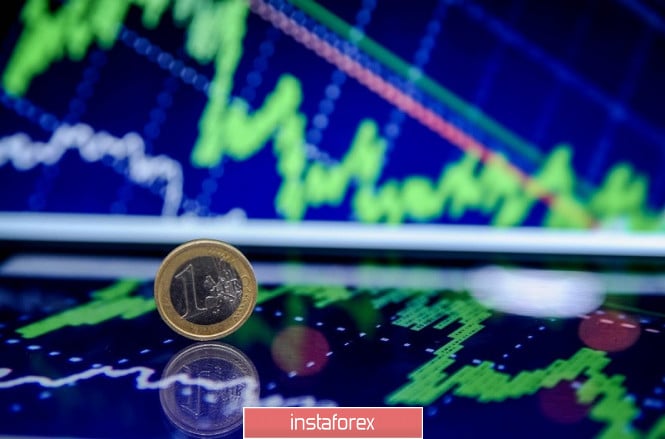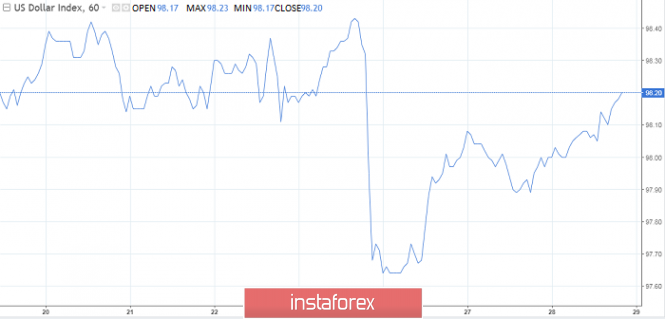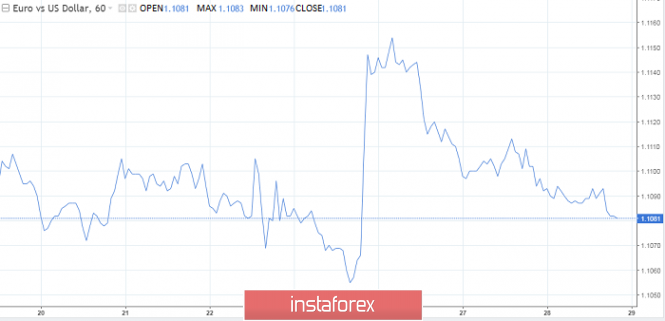
Market sentiment is generally balanced between fears of a slowdown in the global economy and hopes of a degree decline in the trade conflict between the US and China. While this is not noticeable, on the contrary, all sorts of steps of the conflicting parties reveal the gambling tendency of officials to eternal confrontation. It is indicative that neither Beijing nor Washington have so far lost ground on such important issues as technology and intellectual property rights.
Without a breakthrough in trade negotiations in the near future, current trends may well be negatively developed. The yuan is likely to remain under pressure and may well carry out a forecast of a fall to the level of 7.22 against the dollar. A strong weakening of the Chinese currency promises to be the main source of deflation in the world. This pressure will be less felt in the US, as the introduced tariffs lead to higher prices.
Due to the fact that the parties are constantly adding fuel to the "bonfire" of trade disagreements, the dollar risks becoming more expensive in the future not only to the euro, but also to other major currencies.
The fact is that the Federal Reserve will have less space to ease policy. If the United States and China do not come to a compromise, the dollar will head for a 14-year high and rise to 104 against a basket of 6 major competitors.

The EUR/USD pair may suffer the most, as additional pressure on the euro comes from the ECB. The regulator promises to lower rates in September, if it keeps its word, then the main pair can fall to $1.05 by Christmas. At this point, the euro runs the risk of being stuck for the entire first quarter of next year.
The ECB officials are unlikely to be bothered by the fall of the euro, even if the exchange rate reaches parity with the dollar. The main goal is to help the economy and avoid excessive buildup of debts.

Meanwhile, the head of the Bundesbank, Jens Weidmann, believes that the ECB does not need to rush to resume mitigation and "act for action." The speculation about the rate cut at the September meeting is less and less consistent with the latest news from the economic front.
It is worth noting that Weidmann is a traditional hawk, and only with the advent of a vacant seat as head of the ECB began to play the role of a pragmatist. This did not last long, since the place went to Christine Lagarde.
The material has been provided by InstaForex Company - www.instaforex.com